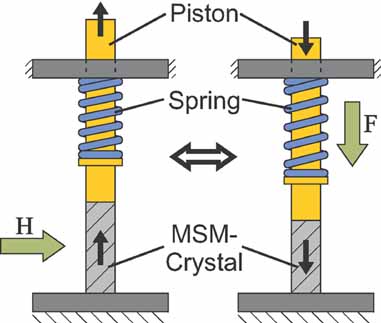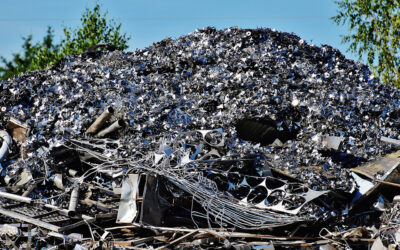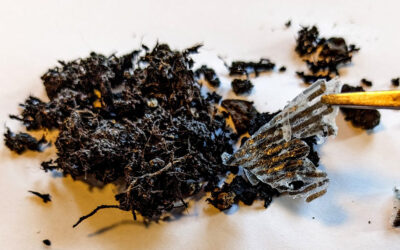Actuators are an essential part of mechanical systems. They convert the electronic input signals into motion. Their characteristics, such as type of provided movement or displacement, precision, cost, operation frequency, and temperature, size, energy density, and produced noise are of vital importance. Often it is not possible to fulfill all these criteria sufficiently; sometimes they are at odds with each other.
 With this in mind, it has been found that magnetic shape memory alloys (MSMA) are a promising material for actuation purposes as they provide relatively large strains and relatively high operation frequencies. Concerning the criteria of precision and noise, these alloys offer high potential for the development of new actuators and other applications.
With this in mind, it has been found that magnetic shape memory alloys (MSMA) are a promising material for actuation purposes as they provide relatively large strains and relatively high operation frequencies. Concerning the criteria of precision and noise, these alloys offer high potential for the development of new actuators and other applications.
Kathrin Schlüter and Dr. Annika Raatz from the Braunschweig University of Technology together with Benedikt Holz from the Saarland University have introduced in a new paper three concepts of such actuators. These three concepts for linear actuators driven by MSMA are the spring/MSMA, the push–push, and the push–pull concept.
The concept of the so called spring/MSMA or spring actuator is based on an MSM element that is working against a restore pre-stress spring. It is of low complexity but has low force generation and low actuating efficiency. Contrary to this principle the push–push actuator substitutes the spring for a second MSM element. In the push–pull concept the active material elongates magnetically due to permanent magnetism.
In the paper, the German researchers explain each operation principle, followed by a description of the realized design and some experimental results. They show advantages and disadvantages and highlight the potential of each. Schlüter, Raatz, and Holz discuss possible applications for certain conditions and requirements.

















